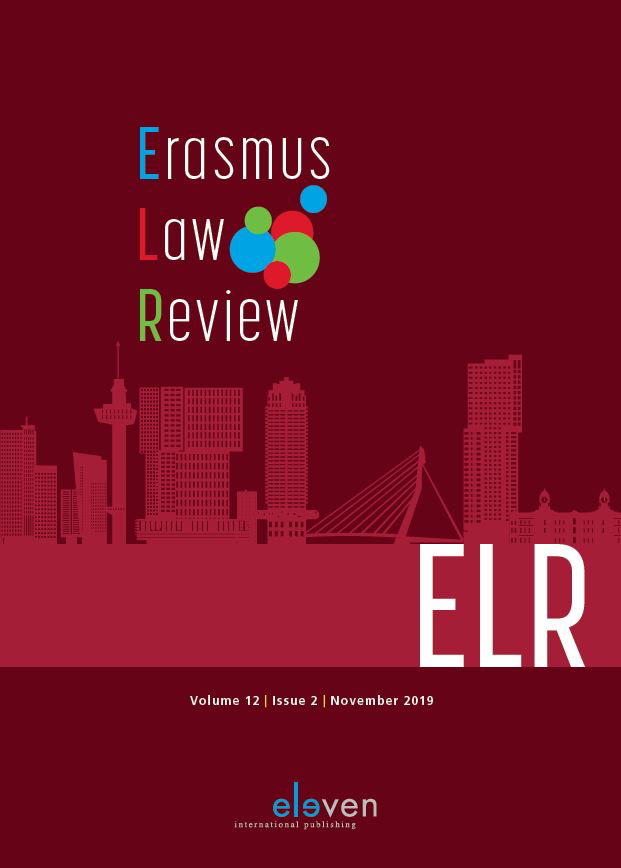|
This paper discusses the rise of a fundamental issue in Dutch criminal proceedings. The presence of a lawyer prior to and during police interrogations has for a long time been a matter open for debate in the Netherlands. Allowing legal assistance during and prior to police interrogations has been researched on several occasions in the previous century and the beginning of this century. In the Netherlands, one of the most important reasons for not admitting legal assistance was and is founded in the confident reliance on the professionalism and integrity of police officers and justice officials in dealing with the interests of suspects. However, after the Salduz case (ECHR 27 November 2008, Appl. No. 36391/02, Salduz v. Turkey), the Dutch government was compelled to draft legal provisions in order to facilitate legal assistance during and prior to police interrogations. The initial drafts still contained a hesitant approach on admitting the lawyer to the actual interrogation. The EU-Directive of November 2013 (Pb EU 2013, L249) set out further reaching standards compelling the Dutch government to create new drafts. In a ruling of April 2014, the Dutch Supreme Court (ECLI:NL:2014:770) argued that the judgements of the ECtHR were too casuistic to derive an absolute right to have a lawyer present during police interrogation. However, they urged the legislator to draft legislation on this matter and warned that its judgement in this could be altered in future caused by legal developments. The Dutch legislator already proposed new draft legislation in February. In this paper it is examined whether the provisions of the new drafts meet the standards as set out in the EU-Directive as well as by the ECtHR. |


Erasmus Law Review
About this journalSubscribe to the email alerts for this journal here to receive notifications when a new issue is at your disposal.
| Article |
|
| Authors | Willem-Jan Verhoeven Ph.D. |
| Author's information |
| Article |
|
| Keywords | Legal assistance, police interrogation, Dutch Criminal Proceedings, EU Directive |
| Authors | Paul Mevis and Joost Verbaan |
| AbstractAuthor's information |
| Article |
|
| Keywords | legal advice, police interrogation, European Union, England and Wales, France |
| Authors | Anna Ogorodova and Taru Spronken |
| AbstractAuthor's information |
|
In October 2013, the European Union adopted a Directive, which guarantees, inter alia, the right of access to a lawyer to suspects of criminal offences from the outset of police custody and during police interrogation. However, adoption of the relevant legislation is not sufficient to ensure that this right becomes effective in practice. A range of practical measures will have to be taken by the Member States’ authorities and the legal profession to effectuate the implementation of the right to custodial legal advice. This article aims to identify the practical factors that may influence the implementation of the Directive, based on the findings of a recent normative and empirical study conducted by the authors. The research was carried out in four European jurisdictions (England and Wales, France, the Netherlands and Scotland), and it consisted of analysis of regulations, observations of daily practice in police stations, accompanying lawyers who provided custodial legal advice, and interviews with criminal justice practitioners. The article provides a range of recommendations on the practical measures to be undertaken by the EU Member States and national Bar associations aiming at improving the protection of suspects’ rights in police custody in practice. |
| Article |
|
| Keywords | legal representation, counsel, juvenile justice, police interrogations, children’s rights |
| Authors | Prof. Dr. Ton Liefaard Ph.D. LL.M and Yannick van den Brink |
| AbstractAuthor's information |
|
The right to counsel of juveniles at the stage of police interrogations has gained significant attention since the Salduz ruling of the European Court on Human Rights in 2008. The legislative and policy developments that have taken place since then and that are still ongoing – both on a regional (European) and domestic (Dutch) level – reveal a shared belief that juvenile suspects must be awarded special protection in this phase of the criminal justice proceedings. This calls for a youth-specific approach as fundamentally different from the common approach for adults. At the same time, there seems to be ambivalence concerning the justification and concrete implications of such a youth-specific approach. This article aims to clarify the underlying rationale and significance of a youth specific approach to the right to counsel at the stage of police interrogations on the basis of an interdisciplinary analysis of European Court on Human Rights case law, international children’s rights standards and relevant developmental psychological insights. In addition, this article aims to position this right of juveniles in conflict with the law in the particular context of the Dutch juvenile justice system and provide concrete recommendations to the Dutch legislator. |
| Article |
|
| Keywords | confession, interrogation, evidence |
| Authors | Eric Rassin Ph.D. and Han Israëls |
| AbstractAuthor's information |
|
Intuitively, confession is a strong piece of evidence, because it appears unlikely that a suspect would confess to a crime he did not commit, thereby acting against his own best interest. Surprisingly, experimental studies show that innocent and well-educated individuals do tend to confess falsely when questioned about something they did not in fact do. In this contribution, an overview is presented of the experimental research on confession evidence. Limitations and implications of the scientific insights are discussed. |

 Issue 4
Issue 4